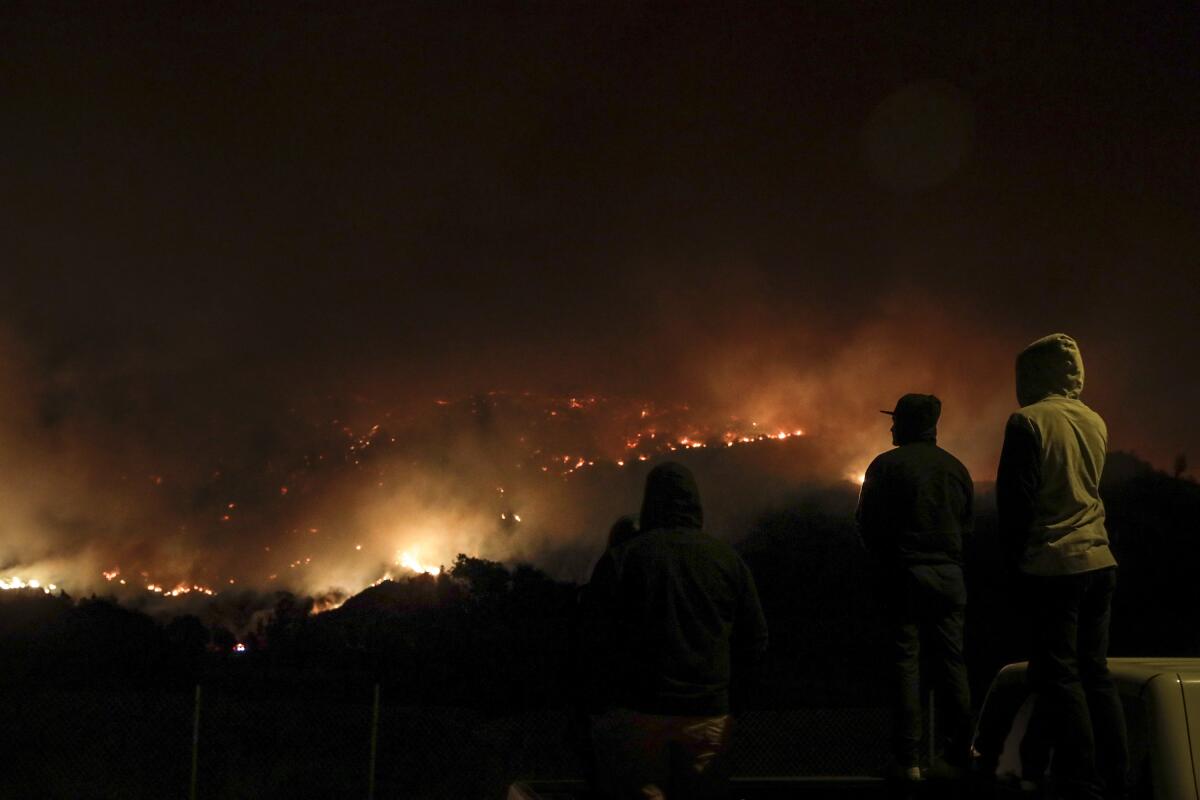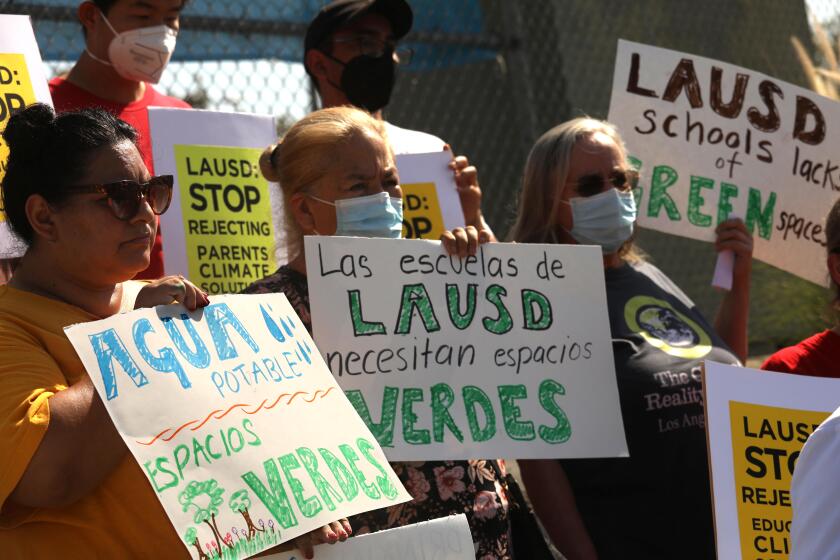Newsletter: No, it’s not the end of California as we know it

- Share via
Good morning. I’m Paul Thornton, and it is Saturday, Nov. 2, 2019. I led with this last weekend, and unfortunately I must lead with it again: Here’s a map of all wildfires burning in California right now. Let’s take a look back at the week in Opinion.
Let’s get straight to the point: You should probably take with a grain of salt any headline that makes sweeping claims about California, a state with a land area larger than all of Germany and so many superlatives (we have the hottest desert and biggest economy in the U.S., for example) that it defies simple understanding.
Nonetheless, I’ve gorged on sodium this week reading pieces like The Atlantic’s “California Is Becoming Unlivable,” the New York Times’ “It’s the End of California as We Know It” and the Wall Street Journal’s “California’s Dark Ages.” The upshot of the punditry is this: Fires are burning large parts of California, a state where livability was already under pressure from high housing prices, scarce resources and (in the case of the Wall Street Journal) inept progressive politicians.
I bristle at these pieces not out of knee-jerk boosterism, as I know better than almost any columnist writing from afar that life in the state I’ve called home since the first Jerry Brown administration has changed. In fact, as I write this, I watch warily for updates on a fire burning unnervingly close to my wife’s family home in rural Ventura County.
But while California has problems, the problem is not California. It’s housing shortages driven by NIMBYism, property tax policies formulated when Republicans (yes, Republicans) had considerable power in this state and a host of other shortsighted decisions made over many years that conspired to locate much of our newest housing in exurban areas most prone to wildfires. (And we’re building more of that.) It’s climate change, a global crisis that a Republican governor long ago recognized poses an especially grave risk to this state.
Each of these problems deserves a deep dive, as the L.A. Times Editorial Board did on both housing and climate change, and as Jacques Leslie did in an op-ed on preemptive power outages. I humbly suggest reading those pieces for real insight on California’s problems.
Five reasons climate change is the worst environmental problem the world has ever faced: The pollutants that cause it are global pollutants, no matter where they are emitted; much of the crisis is yet to come; you can’t definitively blame any disaster in particular on climate change; developing countries contribute to the problem too; and the pollutants that cause it are tied to everyday human activity. L.A. Times
Can’t President Trump just apologize? Probably not, but it’d boost his political fortunes if the president admitted to impeachable conduct in his phone call with the Ukrainian president and asked the country to move on. “Contrition doesn’t come easy for Trump and would be embarrassing for him and his media cheerleaders,” writes Jonah Goldberg. “But it would also give Republican candidates a rationale for opposing impeachment that they could sell.” L.A. Times
Katie Hill should not have resigned. Robin Abcarian concedes that the former Democratic representative from Santa Clarita erred in conducting a relationship with a campaign subordinate, but she says what Hill admits to having done pales in comparison to the scandals that ended other political careers. The L.A. Times Editorial Board says we should never accept the exploitative release of intimate photos, an apparent violation of the spirit of “revenge porn” laws, that led to Hill’s resignation.
There was a mass shooting in Long Beach that you probably didn’t know about. Scott Martelle lays out the grim details of an unnoticed tragedy in Southern California: “This time the scene was just a house in Long Beach. Three people shot dead, at least nine more people wounded with varying degrees of severity, so a dozen people in all lying dead or bleeding in a scene of carnage discovered after neighbors heard what some estimated to be 20 or so gunshots. It’s the everyday nature of this incident that should offend the public consciousness.” L.A. Times
Reach me: paul.thornton@latimes.com
More to Read
A cure for the common opinion
Get thought-provoking perspectives with our weekly newsletter.
You may occasionally receive promotional content from the Los Angeles Times.










